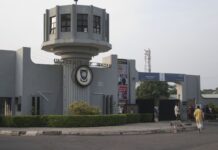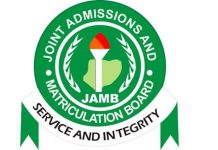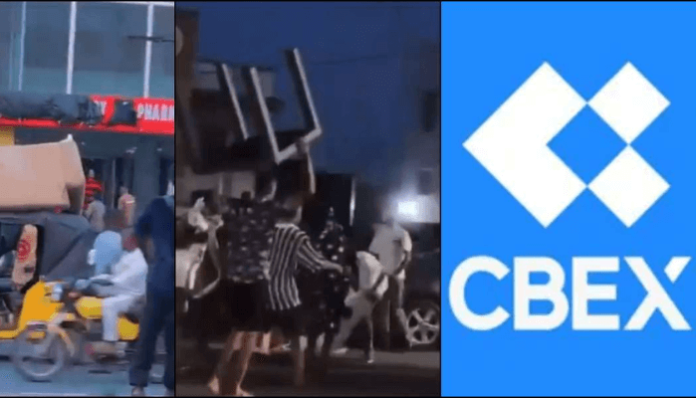Reuben Abati
I was abroad when the CBEX scandal broke: somehow, I tend to be out of town when Nigerians get into very serious trouble but it has been my singular misfortune, and this has happened so many times for close to four decades, to discuss other people’s misfortune. Occupational hazard, I guess. The choice I have made. The job that I do- worrying about community headache, including other people’s self-inflicted migraine for which my job requires me to take analgesics on other people’s behalf. The story as told is that a group of con artists operating under the auspices of a group registered with the Corporate Affairs Commission (CAC) as ST Technologies International Limited, even listed with the Economic and Financial Crimes Commission’s Special Control Unit Against Money Laundering had set up fancy offices in Lagos and Ibadan, recruited staff, and asked Nigerians to bring money and get 100% returns on investment in 30 days. Nigerians rushed to CBEX, that is Crypto Bridge Exchange. They talked about the beautiful offices and the certificates of registration that they saw. They invested money, which as at the last estimate stood at N1.3 trillion. Even when they were warned in April 2024 by Hong Kong financial authorities that CBEX was a Ponzi scheme, a fraudulent financial arrangement, Nigerian investors and the regulators failed to heed the warning. They took their money to CBEX. One morning, the CBEX system stopped working. The investors and depositors could not gain access to their investments. Over N1.3 trillion was lost. The fancy offices of CBEX suddenly shut down and the managers disappeared into thin air.
The Economic and Financial Crimes Commission (EFCC) has now declared about eight of the CBEX managers wanted. They are reportedly on the run, of course with their loot. The fact that this has happened under the watch of the security agencies, and the regulators, specifically the Securities and Exchange Commission (SEC), whose officials failed to do due diligence and placed Nigerians at risk is scandalous enough. It speaks to the failure of law enforcement, regulation and institutions in Nigeria.
But the deeper issue is the greed and poverty of the average Nigerian. Our people are so poor that they would do anything to make the extra buck. The menace of rape, kidnapping and ritual killings has been linked for example to the shamanist belief that you can become rich overnight by using harvested human body parts. Traditional spell-binders deceive those who want to get rich quick with that story and there have been killings in the land. Prosperity pastors tell the congregation that the church is not for the poor, and that even our Lord Jesus Christ had no serious interest in the poor. These same prosperity pastors in Nigeria have not said much about the Catholic Pontiff, Franciscus, who was buried over the weekend and who was known for his simplicity, humility, and commitment to the values of peace, equality, justice, and inclusion. Once upon a time in Nigeria, ordinary people questioned the source of anybody’s wealth, but now, you just must be rich to be considered a citizen who deserves the community’s attention. The emergent nouveaux riche class in Nigeria may not have an evident means of income, they spend money for a living, they marry the most beautiful girls in town, and they are better secured than the Nigerian state itself. It is this collapse of everything sane and sensible that has driven the average Nigerian to the embrace of CBEX and similar schemes. Wealth by any means possible is Nigeria’s national ethic codified in the reign of 419 as it is called, and the triumph of laziness and ostentation.
There is also something tragically wrong with public memory. In the 1980s, a certain fellow – Umanah Umanah introduced a Ponzi scheme called MMM. By 2016, MMM crashed after the managers had stolen over N18 billion. The people cried and protested as they are doing now. But by 2022, another Ponzi scheme, MBA Forex had again swindled the people of amounts close to N213 billion. The story is the same. People weep. A few persons commit suicide. Everyone laments, but when another Ponzi scheme shows up, the same fortune chasers of Nigeria, who would rather gamble than work harder and be honest. They would look for quick, unreasonable profit, and they would get swindled again. The IMF/World Bank at the end of the recent Spring Meetings in Washington DC warned that poverty is bound to get worse in Nigeria by 2027 – 57% of the population would live below the poverty line. The tragedy of this, already well lamented by NACCIMA and the Manufacturers Association of Nigeria (MAN) is that more Nigerians would become desperate, seek unorthodox means of getting rich, and gamble away their lives. This is why I think that public advocacy is important: to let young persons who appear to be the most vulnerable know that there are no short, overnight cuts to success or financial gain.
There should be a national programme on financial intelligence and investment, and even more so, we need to address the people’s lack of trust in Nigeria’s financial system. The banks are not serving us well! Nigeria is probably the only country in the world where people deposit their hard-earned income, and they end up daily being told that there is no money in the bank vaults whenever they go to the banks to withdraw money. A few years back, Nigerians were encouraged to embrace digital banking, and financial inclusion. Automated Teller Machines (ATMs) were introduced, and crowds were reduced in the banking halls. But the ATMs no longer work satisfactorily, the charges for basic transactions have been increased, the people have found better service in alternative banking services. The irony is that the banks are posting huge, alarming, end-of-quarter profits, and those who work in the banks appear far more prosperous, happier and more joyous than the hardworking people who ask them to help keep their money. There is a moral crisis in Nigerian banks. We would need to reassure the people, and rebuild their faith in the financial intermediation system.
It is in this context that I consider recent attempts to strengthen the Nigerian Deposit Investment Corporation (NDIC) instructive. Established in 2006 (NDIC Act No 16 of 2006), the agency is a regulatory body with the responsibility to protect depositors’ funds, and ensure that when and if a bank fails, the customer is at least entitled to some form of protection. There is a devil in the amount of insurance that the NDIC can guarantee, sometimes less than one percent of a liquidated bank customer’s deposit, or the maximum insured limit of N5 million – but the principle is that the customer is assured of a certain level of protection. The NDIC is a liquidator, with the mandate to look into the assets and liabilities of a failed bank. It also acts as some kind of moral and legal police. The high and mighty in Nigeria like to take loans from the banks, in fact many of them are habitual debtors – they borrow money and they insist that because of their position in society, they are entitled to borrow other people’s money and refuse to pay back.
The NDIC has had cause to intervene in such cases in the past, collaborating with the Central Bank of Nigeria, to protect depositors. At the moment, to be precise since Friday, April 25, 2025, the NDIC began the disbursement of N46.6 billion as the first tranche of liquidation dividends to depositors of the defunct Heritage Bank, including funds exceeding the insured limit of N5 million. There are about 50 Deposit Money Banks (DMBs) currently in liquidation, 546 Microfinance banks, and 55 Primary Mortgage Banks. NDIC recovers assets, takes back loans and advances from debtors by deploying Debt Recovery Agents (DRAs) and assists depositors to realize their investments. Between January 2024 and February 2025, the NDIC has recovered over N35 billion in assets – risk assets, physical assets and investments.
Those who patronize Ponzi schemes, overnight millionaire, money doubling, betting outfits do not have this kind of protection. There is a body called the Securities and Exchange Commission (SEC) which regulates the capital market, but it looks like they are asleep for the most part in that agency and would seem helpless where Ponzi schemes such as CBEX are involved. Regulatory and law enforcement agencies must be alive to their responsibilities to protect the common good. Their regulatory frameworks and the enabling Acts need to be reviewed. There is a sense in this latter regard that the Securities and Exchange Commission (SEC) can learn from the example of the NDIC. I mentioned that there was a devil in the operations of the NDIC, but what may appear as an improvement in that agency’s operations can be traced first to leadership, and second to the strengthening of the framework which grants NDIC a broader scope for operation, to wit – the enhancement of the asset recovery and powers of the agency by the NDIC Act of 2023.
The Act was signed into law on May 26, 2023 by President Muhammadu Buhari basically as it were to strengthen the NDIC in the discharge of its mandate – one of the very few good things that Buhari did when he was alert enough to pay attention! The relevant amendments are in Sections 26 which deepens NDIC’s powers to set off debts, 27 which grants the agency powers to call up Bank Verification Numbers (BVN), 48 – on powers to foreclose legal or equitable mortgage where an obligor fails, and the power to take possession and foreclose or sell. Sections 57, 76 – powers to act as liquidator, Section 58 – appointment of Debt Recovery agents; Section 64 – powers to freeze assets of debtors, and 66 – power to track and trace assets and debtors.
The caveat must be added however that while a stronger legal framework can enhance the effectiveness of regulatory agencies and public institutions generally, leadership also matters. The best practice legal backing for an institution would yield no positive results if the leader of the agency does not function and the institution itself is not primed for success. Nigeria has been revising its electoral law since 1999, for example, virtually all the issues about representation, technology, process, verification, eligibility, procedure and collation of results have been debated, but two years to the next general elections, we are still on the same question of electoral reform. It is a reflection of the episodic, ad hoc, manner in which Nigeria functions that long after 2027, we would still have cause to ask for further reforms. The Nigerian professional political elite is not willing to change its colours. Leadership counts. But Nigerian politicians will always try to game and cheat the system. This is the DNA of Nigerian politics and it would never change. The personalities will change though. Every season, a new set of characters would show up at all levels, play their part, and as Shakespeare tells us, they would make their exits and entrances forever for good or ill.
Nonetheless, our argument is focused on the need to give government agencies teeth to be able to fulfil their mandate. The NDIC has been strengthened, and its current leadership has been proactive in applying the laws to promote a stable financial system and provide guarantees for bank depositors as it collaborates in doing so with the Asset Management Corporation of Nigeria (AMCON) and the Central Bank of Nigeria (CBN). There is an unresolved argument about whether or not there is an overlap in the functions of the NDIC and AMCON, but they seem to complement each other. Depositors and investors’ funds are too critical to be left in the throes of the kind of ambiguity that the Securities and Exchange Commission (SEC) has been projecting. We may have very little sympathy for the people who lost money in the CBEX scheme, but I can understand the desperation of those who are looking for quick prosperity in a very religious country where persons are now being told by at least one Port Harcourt Pastor that the poor do not have a place in the Nigerian church, or with Jesus Christ, and the World Bank is saying that more people will become very poor very soon. Soon, a Nigerian rich man of today may find it very difficult to drive on the streets tomorrow, and that makes him poor within the context of what has been described as multi-dimensional poverty. The poor Nigerian who wants to patronize Ponzi schemes, gambling and betting haunts and dubious investments also needs to be protected. SEC should be strengthened. It needs a root canal to rescue its teeth.

























































